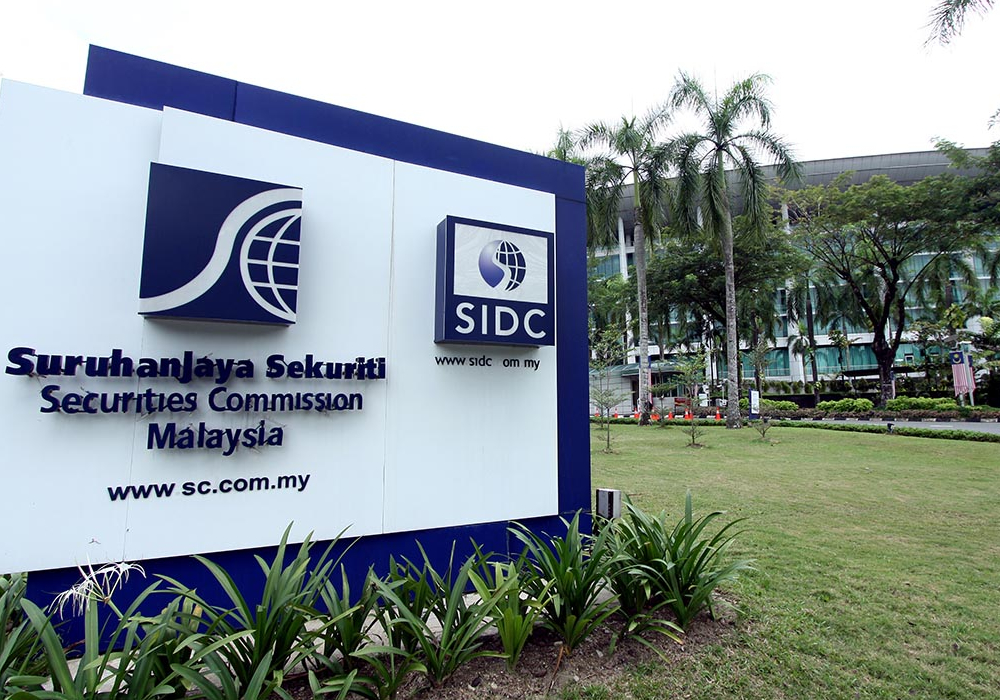Malaysia Starts Regulating Cryptocurrencies Today
 Malaysia’s finance minister has announced that the order to regulate cryptocurrencies and initial coin offerings as securities has come into force. Crypto service providers and exchanges are required to obtain authorization from the country’s Securities Commission, which will work with the central bank to ensure compliance. Also read: Indian Supreme Court Moves Crypto Hearing, Community Calls for Positive Regulations
Malaysia’s finance minister has announced that the order to regulate cryptocurrencies and initial coin offerings as securities has come into force. Crypto service providers and exchanges are required to obtain authorization from the country’s Securities Commission, which will work with the central bank to ensure compliance. Also read: Indian Supreme Court Moves Crypto Hearing, Community Calls for Positive RegulationsRegulating as Securities
Malaysian Finance Minister Lim Guan Eng said on Monday that his country “will regulate initial coin offerings (ICOs) and the trade of cryptocurrencies,” Reuters reported, adding:The order is known as “the Capital Markets and Services (Prescription of Securities) (Digital Currency and Digital Token) Order 2019.” Cryptocurrencies, ICOs and their related activities must comply with relevant securities laws and be approved by the commission, the minister explained.An order to recognize digital currencies and digital tokens as securities will come into force on Jan. 15, under the regulation of the Securities Commission Malaysia [SC].
 Following Lim’s statement, the Securities Commission Malaysia confirmed that it “will put in place guidelines to regulate offering and trading of digital assets.” The regulator noted that “the offering of digital assets, as well as its associated activities, will require authorisation from the SC and compliance with relevant securities laws and regulations,” elaborating:
Following Lim’s statement, the Securities Commission Malaysia confirmed that it “will put in place guidelines to regulate offering and trading of digital assets.” The regulator noted that “the offering of digital assets, as well as its associated activities, will require authorisation from the SC and compliance with relevant securities laws and regulations,” elaborating:Furthermore, the commission stated that it “will enter into coordination arrangements” with the Bank Negara Malaysia, the country’s central bank, in order “to ensure compliance with laws and regulations under the purview of both regulators.” In addition, the regulator revealed that “The relevant regulatory framework is expected to be launched by end-Q1 2019.” Lim was quoted by The Star as saying, “Any person offering an ICO or operating a digital asset exchange without SC’s approval may be punished, on conviction, with imprisonment not exceeding 10 years and fine not exceeding RM10mil [~$2.44 million].”The guidelines will among others, establish criteria for determining fit and properness of issuers and exchange operators, disclosure standards and best practices in price discovery, trading rules and client asset protection. Those dealing in digital assets will be required to put in place anti-money laundering and counter-terrorism financing (AML / CFT) rules, cyber security and business continuity measures.

Ministry of Finance Sees Potential
The finance ministry “views digital assets, as well as … underlying blockchain technologies, as having the potential to bring about innovation in both old and new industries,” Lim further described, elaborating:Meanwhile, Bank Negara Malaysia has repeatedly said that cryptocurrencies are not legal tender in its country. The central bank has advised the public to carefully evaluate the risks associated in dealing with them.In particular, we believe digital assets have a role to play as an alternative fundraising avenue for entrepreneurs and new businesses, and an alternate asset class for investors.
 Bank Negara Malaysia has published a list of companies that have declared themselves as cryptocurrency exchanges or service providers, but emphasized that it has neither licensed nor authorized these businesses. Among companies on the list are Belfrics Malaysia, Bit Malay, Bitpoint Malaysia, Bit Trade Enterprise, Bong Technology, Bxm, Luno Malaysia, Openbit, Udax International, Upbit Malaysia, and Xbit Asia. What do you think of Malaysia starting to regulate cryptocurrencies and ICOs? Let us know in the comments section below.
Bank Negara Malaysia has published a list of companies that have declared themselves as cryptocurrency exchanges or service providers, but emphasized that it has neither licensed nor authorized these businesses. Among companies on the list are Belfrics Malaysia, Bit Malay, Bitpoint Malaysia, Bit Trade Enterprise, Bong Technology, Bxm, Luno Malaysia, Openbit, Udax International, Upbit Malaysia, and Xbit Asia. What do you think of Malaysia starting to regulate cryptocurrencies and ICOs? Let us know in the comments section below.Images courtesy of Shutterstock, the Malaysian government, and Reuters.
Need to calculate your bitcoin holdings? Check our tools section. The post Malaysia Starts Regulating Cryptocurrencies Today appeared first on Bitcoin News.
Bank Negara Malaysia BTC Central Bank crypto Cryptocurrencies Digital Currency Finance Minister ICO initial coin offerings Lim Guan Eng Malaysia N-Economy Regulation rules Securities securities commission Virtual Currency



